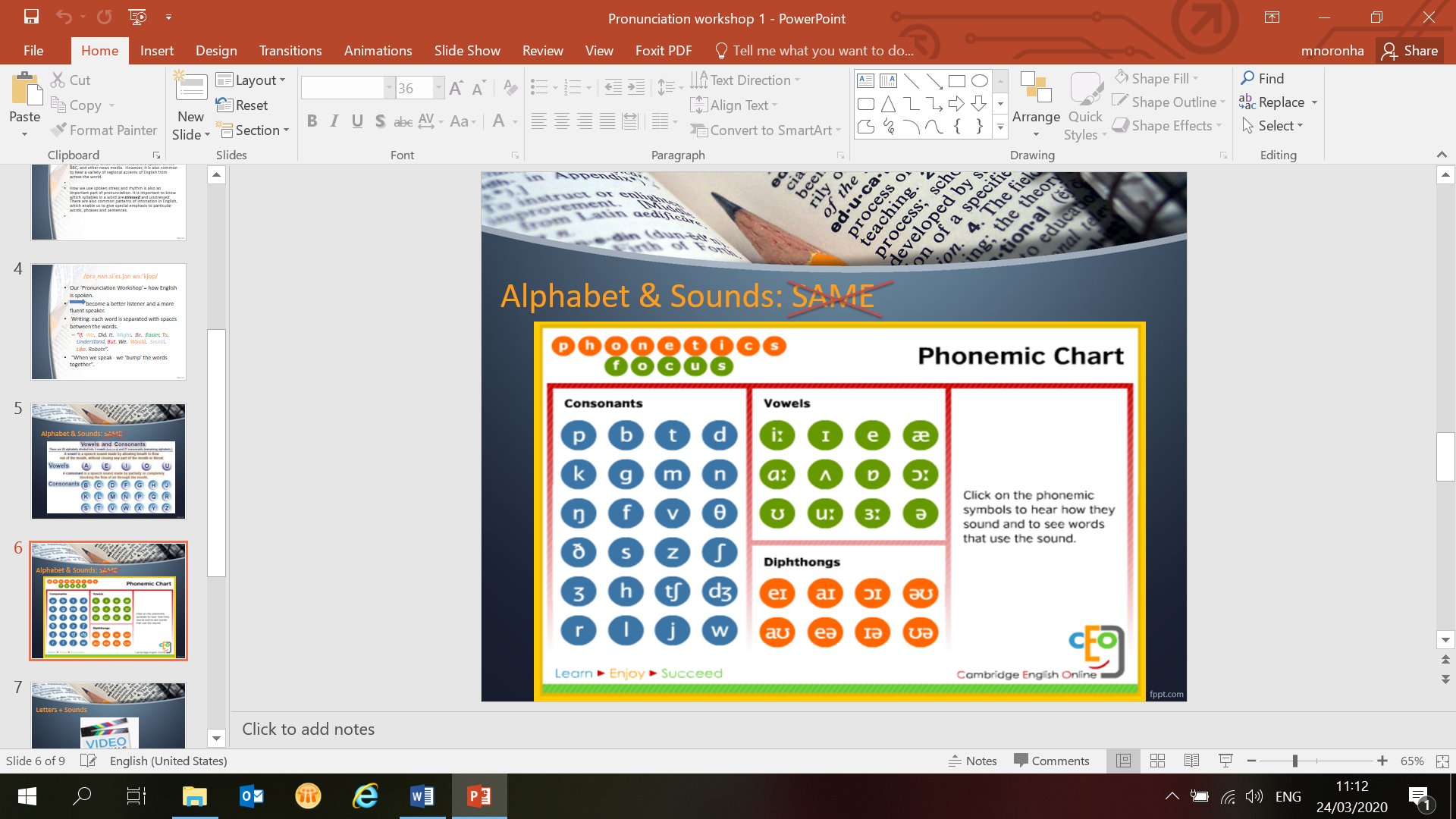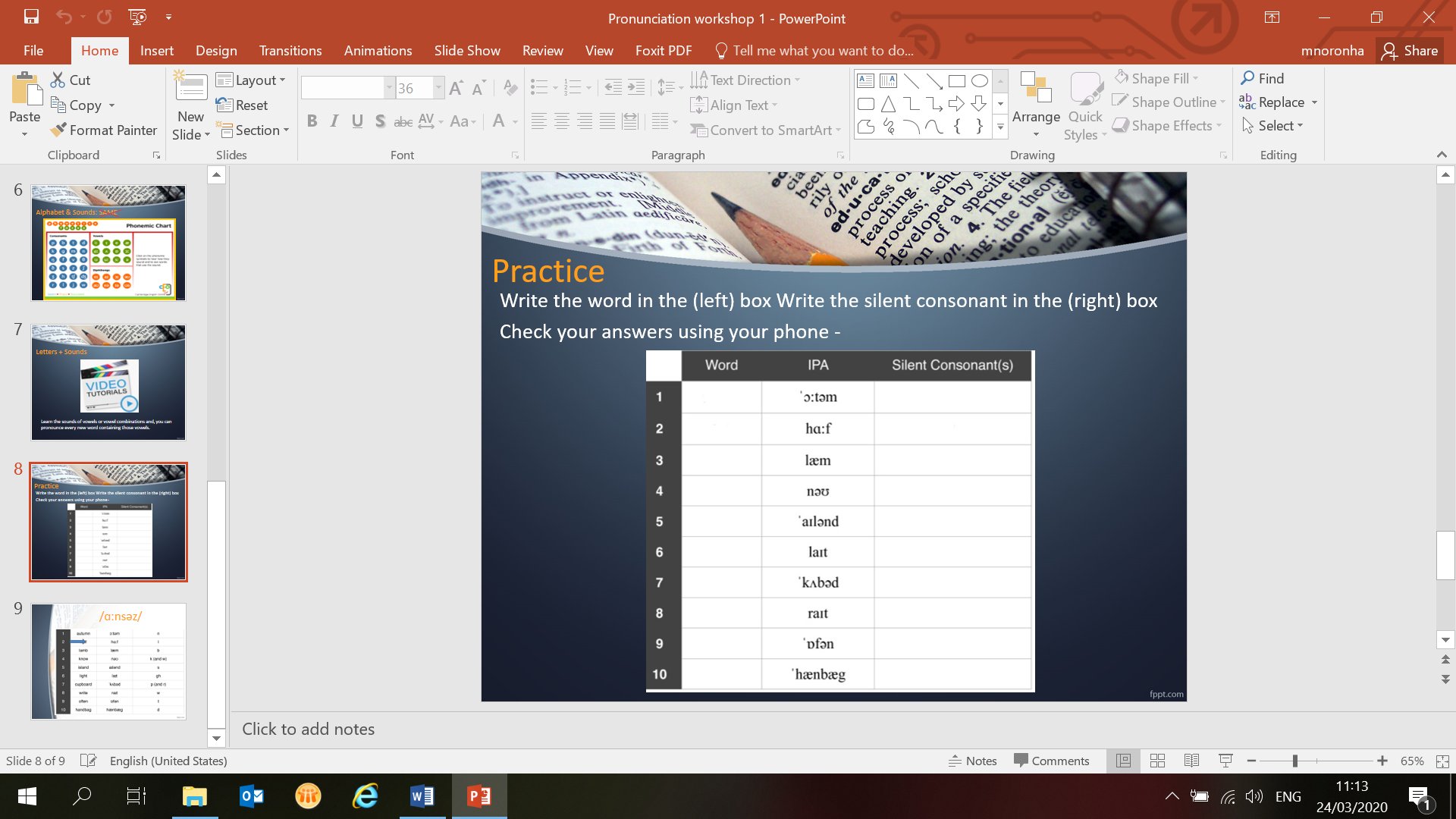MCMC: On-line Pronunciation Workshop –
How IPA Can Help Students Improve Pronunciation


MCM College is offering a 5-week online pronunciation workshop (as part of its English Enhancement Series) for students to improve pronunciation skills. Students whose native language is not English can feel quite uneasy speaking and reading out loud especially when having received negative responses for mispronouncing words. Difficulty communicating with others because of mispronunciation can lead to negative impressions, misunderstandings and ineffective communication. Students may possess a wide knowledge of vocabulary; however, if they cannot pronounce those words correctly and no one can understand the words that they are trying to use, communication becomes futile. Therefore, it is important to identify and fix common pronunciation mistakes to create smoother relationships with people we meet: college masters, professors or even international exchange students.
Associate Master, Dr. Manuel Noronha began the workshop by explaining that English (unlike other languages), has a written equivalent of sounds (or phonemes) identified as graphemes, and the English alphabet (constructed of 26 letters) is referred to as the ‘orthographic’ alphabet. However, not all words have a phoneme/grapheme match. For example, if we consider the following words: bough, through and trough all terminate with ough, but each word is pronounced differently. For this reason, English is best described as a semi-phonetic language: that is, sometimes graphemes correspond to phonemes, and sometimes they do not. Therefore, to study the sounds of English, it is necessary to introduce an interactive International Phonetic Alphabet chart as a visual aid because it contains symbols that produce all possible sounds in English.
Princeton-in-Asia Fellow, Rishi Ling, and Resident Fellow, Dr. Peggy Lau assisted with small group practice sessions. Students were then tasked with completing and presenting a short fill-in-the blank phoneme worksheet for the next workshop. They were encouraged to use online tools for checking phonetic transcription to reinforce their learning. Practice is key, and application becomes a habit. |
|